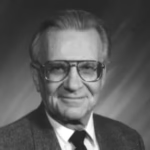A New Testament pastor must be a theologian. He must also be a scholar. Both of these ideas suggest to the casual reader, a man of God who is a bookworm and out-of-touch with reality. Quite the opposite is true.
The pastor’s mandate is to preach the Word (2 Timothy 4:2). This assumes that he accepts the Word is from God Himself in every detail, and that he must proclaim it exactly as God intended it. Rightly understood, then, theology and scholarship move the preacher in the direction of God and His Word, not away from it. The mature preacher places top priority on serious study of the Bible. Not only is it his function to preach that Word, he actually stands in God’s place as he preaches it.
But it is one thing to have a high view of Scripture and the proclamation of it, it is quite another to follow proper procedure in study and sermon preparation. Three issues are at stake here.
First, the preacher must be accurate. In speaking of this, Paul warns Timothy to be extremely careful in exegeting Scripture: “Study to shew thyself approved unto God, a workman that needeth not to be ashamed, rightly dividing the word of truth” (2 Timothy 2:15). This last phrase, “rightly dividing…” means to “cut straight” or “plow a straight furrow.” Paul contrasts this with inaccurate teachers, whose vile mouthings gnaw away like gangrene. Too many are content to offer their congregations predigested information with little thought as to its Biblical accuracy. Others ignore the process altogether and try to attack the enemy with shotguns full of powder but empty of pellets, thinking to bluff with bombast and bluster. Scripture leaves the preacher with no such alternatives. He is to be faithful and precise in his understanding and presentation of truth.
Second, the preacher should be consistent. It does not matter what aspect of revealed truth is considered, because all truth is of God. The preacher–scholar should expect to discover a consistency between natural revelation (Romans 1) and special revelation (1 John 5). Of course, any concept of revelation presupposes the existence of God. That does not confound us because all philosophical conclusions are built on “faith” presuppositions. The very concept of revelation presupposes the existence of a personal, sovereign God.
Thus, the Christian’s world-view is built on a supernatural base. A self-consistent God is the fountain of all truth. Non-Christian scholars may dismiss this as a form of mystical intuition, but he denies God and His Word in the process. Some have the tendency to allow for dichotomy of truth, but the preacher is forbidden to twist Scripture to fit the demands of unregenerate scholarship. The point is clear: Let God be true and every man a liar. God’s revelation presents a consistent pattern.
Third, God’s revelation must be interpreted properly as well. It is one thing to accept the inspiration, infallibility, inerrancy, and integrity of Scripture, it is quite another to discover its meaning. The preacher’s task is formidable in hermeneutics. He must be careful to not superimpose his own biases on God’s written revelation. He should simply be asking, what is God saying here? This is far from the approach of the Bible student who insists that a given passage means a certain thing because he “thinks” it does. One student’s “thought” becomes another student’s objection. It is dangerous when the interpreter, and not the revelation becomes the authority.
Underlying these three issues is motive. It plays a key role in Biblical scholarship. The preacher is not content to simply mine truth. He must go on to maturity and urge others to do the same. The writer to the Hebrews rebukes them for their failure to mature (Hebrews 5:11–14) and then he exhorts them to go on to maturity (Hebrews 6:1–10). It is significant that maturity is in direct proportion to sound doctrine. In fact, these passages specify three requirements in the maturing process: (1) time—5:12; (2) growth in the knowledge of the Word—5:13; (3) the use of that Word—5:13,14.
Maturity is not an end in itself. Biblical scholarship should concern itself with building up (edifying) fellow believers so that they will be equipped for ministry, too. Paul commands: “And the things that thou hast heard of me among many witnesses, the same commit thou to faithful men, who shall be able to teach others also” (2 Timothy 2:2). Why? Paul answers: “For the perfecting of the saints, for the (their) work of the ministry, for the edifying of the body of Christ: Till we all come in the unity of the faith, (doctrine) and of the knowledge of the Son of God, unto a perfect man, unto the measure of the stature of the fulness of Christ:” (Ephesians 4:12,13).
Finally, the Biblical scholar is motivated by a keen desire to glorify God. This is his driving passion (1 Corinthians 10:31). If all ulterior motives and all inbred prejudices about God’s revelation were abandoned, and the preacher–scholar was content to rest solely on the objective Word of God with the motive to bring God glory, the resultant change in our lives, churches, and schools would be phenomenal. Let the New Testament preacher not only be a theologian, let him be a scholar. His life and the life of his church depend on it.

Dr. Ralph G. Turk
Dr. Ralph G. Turk (D.Min., Trinity Evangelical Divinity School) was a dedicated pastor and theologian known for his passion for Christ, compassion for people, and zeal for ministry. Born in Yale, MI, he served in various pastoral roles across California, Colorado, Illinois, and Minnesota before joining the faculty at Faith Baptist Bible College in Ankeny, Iowa, in 1988.
Dr. Turk was a professor and briefly served as dean at the seminary he attended, where he hosted memorable seminars, including one on Kierkegaard in his living room. He passed away in 2002, leaving behind a legacy of faithful service and commitment to theological education.